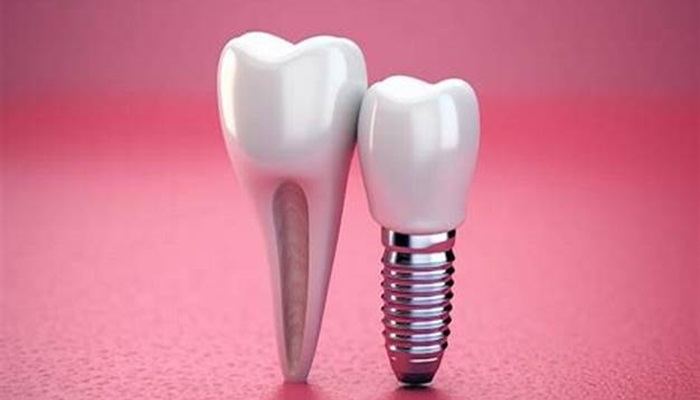Dental implants have revolutionized modern dentistry, offering a durable and reliable solution for replacing missing teeth.
One of the key considerations for patients considering dental implants is the longevity and guarantee of these prosthetic teeth replacements. Understanding how long dental implants are guaranteed for involves exploring various factors, including materials used, implant placement techniques, maintenance practices, and the policies of dental providers and manufacturers.
Introduction to Dental Implants
Dental implants are prosthetic replacements for missing teeth that mimic the structure of natural teeth. They consist of three main components: the implant fixture, abutment, and crown. The implant fixture is typically made of titanium, a biocompatible material that integrates with the jawbone through a process called osseointegration. This integration provides a stable foundation for the replacement tooth or teeth.
see also: What Is A Negative About Dental Implants?
Factors Influencing Implant Longevity
Several factors influence how long dental implants can last and the guarantees associated with them:
Implant Material: Titanium is the most commonly used material due to its biocompatibility and ability to fuse with bone.
Other materials like zirconia are also used for dental implants, each with its own characteristics affecting longevity.
Osseointegration: Successful osseointegration is crucial for the long-term stability of dental implants. Factors affecting osseointegration include bone quality, patient health, and surgical technique.
Implant Design: The design and placement of implants can impact their durability. Factors such as implant surface texture, thread design, and the type of connection between the implant and abutment influence stability and long-term success.
Maintenance and Oral Hygiene: Proper oral hygiene practices and regular dental visits are essential for maintaining implant health. Good oral care helps prevent peri-implant diseases that can compromise implant longevity.
Patient Health and Habits: Systemic health conditions, smoking, and habits like teeth grinding (bruxism) can affect the lifespan of dental implants.
Understanding Implant Guarantees
Guarantees associated with dental implants vary depending on several factors:
Manufacturer Policies: Dental implant manufacturers typically offer warranties or guarantees on their products, covering defects or failures within a specified period. These periods can range from 5 to 10 years or more, depending on the manufacturer and the specific implant components.
Dental Practice Policies: Dental practices may offer additional guarantees or warranties on the placement and restoration of implants. This can include coverage for implant failure or complications related to the surgical procedure.
Terms and Conditions: Guarantees often have terms and conditions that specify what is covered and under what circumstances. Common exclusions may include complications due to patient non-compliance with oral care instructions or pre-existing conditions affecting implant success.
Typical Warranty Periods for Dental Implants
Implant Fixture: The titanium implant fixture itself typically comes with a warranty ranging from 5 to 10 years or more.
This warranty covers defects in materials or workmanship that may lead to implant failure.
Abutment and Crown: The abutment, which connects the implant fixture to the crown, and the prosthetic crown itself may have separate warranties. These warranties can vary, with the crown often having a shorter warranty period due to normal wear and tear.
Extended Warranties: Some dental practices offer extended warranties or maintenance plans that cover regular check-ups and maintenance to ensure the longevity of the implants.
Factors Affecting Longevity Beyond Warranty Periods
While warranties provide assurance within a specified timeframe, the longevity of dental implants can exceed these periods with proper care and maintenance. Key considerations include:
Regular Dental Check-ups: Routine dental visits allow for early detection of potential issues and preventive care to maintain implant health.
Oral Hygiene Practices: Patients are advised to follow recommended oral hygiene practices, including brushing, flossing, and using antimicrobial mouth rinses to prevent peri-implant diseases.
Avoiding Risk Factors: Patients should avoid smoking and manage conditions like diabetes that can affect implant healing and longevity.
Conclusion
Dental implants offer a reliable solution for restoring missing teeth, with guarantees and warranties providing reassurance for patients. Understanding how long dental implants are guaranteed for involves considering factors like materials, implant design, maintenance practices, and warranty terms. By following recommended care protocols and choosing reputable providers, patients can maximize the lifespan of their dental implants beyond the warranty period, enjoying the benefits of a functional and natural-looking smile for years to come.

